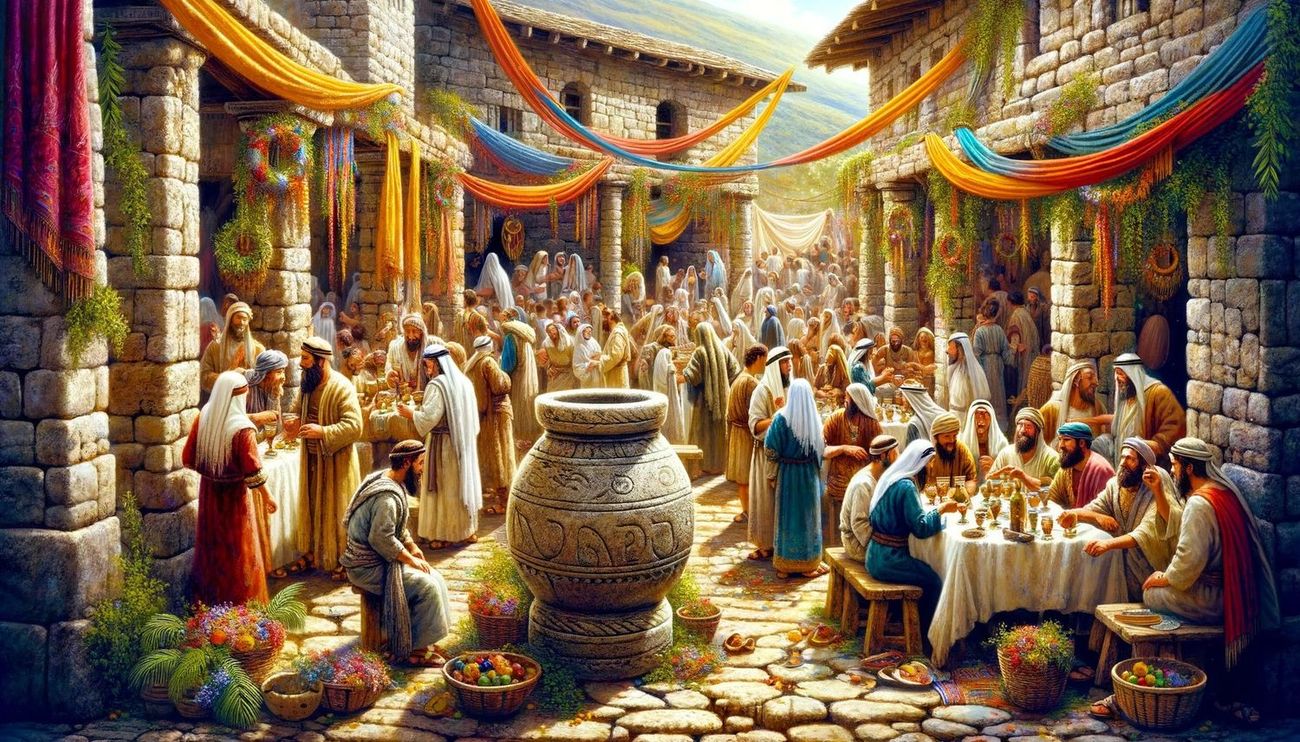Home>Christian Videos>Bible Stories>Parable Of The Sower: In Which Gospels?


Bible Stories
Parable Of The Sower: In Which Gospels?
Published: March 7, 2024
Ericka Andersen, an editor at Christian.net, expertly merges digital strategy with content creation, focusing on faith and societal issues. Her communication skills enhance the platform's engaging narratives, fostering meaningful dialogue on belief's impact on society.
Discover the parable of the sower in the Bible and explore its significance in the gospels. Uncover the timeless wisdom of this biblical story.
(Many of the links in this article redirect to a specific reviewed product. Your purchase of these products through affiliate links helps to generate commission for Christian.net, at no extra cost. Learn more)
Table of Contents
Introduction
The Parable of the Sower is a well-known teaching of Jesus, found in several of the Gospels. It is a story that illustrates the different ways people receive and respond to the message of God. This parable is significant in understanding the nature of faith and the challenges that believers face. In this article, we will explore the presence of the Parable of the Sower in the Gospels of Matthew, Mark, Luke, and Thomas. Let's delve into the unique perspectives and insights that each of these accounts provides.
Read more: How Many Parables Are In The Gospels
The Parable of the Sower in the Gospel of Matthew
In the Gospel of Matthew, the Parable of the Sower is found in chapter 13, where Jesus uses this story to teach about the different responses people have to the message of the kingdom of heaven. The sower represents anyone who spreads the word of God, and the seeds symbolize the message being sown. The various types of soil on which the seeds fall represent the different conditions of people's hearts when they hear the message. The rocky ground, thorny soil, and good soil illustrate the responses of those who hear the word but do not understand it, those who receive it with joy but are quickly discouraged, and those who truly understand and bear fruit, respectively. This parable emphasizes the importance of having a receptive heart and the impact of external influences on one's faith.
Key Points in the Gospel of Matthew:
- Interpretation by Jesus: In this gospel, Jesus provides an interpretation of the parable, explaining the significance of each element. This insight helps the readers understand the deeper spiritual meaning behind the story.
- The Kingdom of Heaven: The focus on the "kingdom of heaven" in Matthew's account highlights the spiritual nature of the message being sown. It underscores the eternal significance of how people respond to God's word.
The Parable of the Sower in the Gospel of Matthew serves as a powerful lesson on the importance of receptivity and perseverance in the face of challenges to one's faith.
The Parable of the Sower in the Gospel of Mark
In the Gospel of Mark, the Parable of the Sower is presented in chapter 4. Mark's account of this parable closely resembles the one found in Matthew, emphasizing the significance of the different types of soil in receiving the seeds. The rocky ground, thorny soil, and good soil represent the varying responses of individuals to the message of God. Mark's narrative style succinctly captures Jesus' teachings, focusing on the essential aspects of the parable and its implications for the listeners. The emphasis on the challenges and obstacles that can hinder the growth of faith resonates throughout Mark's portrayal of the Parable of the Sower. This gospel underscores the need for perseverance and resilience in the face of adversity, echoing the theme of spiritual endurance found in the other accounts of this parable.
Key Points in the Gospel of Mark:
- Succinct Narrative: Mark's concise and direct approach to presenting the Parable of the Sower highlights the core message of the story, allowing readers to grasp its significance without elaborate details.
- Obstacles to Faith: The focus on the rocky ground and thorny soil in Mark's account underscores the challenges and distractions that can impede one's spiritual growth. This serves as a reminder of the perseverance required to overcome such obstacles.
Mark's portrayal of the Parable of the Sower offers a clear and impactful depiction of the challenges and triumphs associated with receiving and nurturing the message of God.
Read more: Which Disciples Wrote Gospels
The Parable of the Sower in the Gospel of Luke
In the Gospel of Luke, the Parable of the Sower is presented in chapter 8. Luke's account of this parable echoes the themes of the other Gospels, emphasizing the different responses of people to the message of God. The focus on the sower and the various types of soil highlights the significance of receptivity and the impact of external influences on one's faith. Luke's narrative style provides a detailed and vivid portrayal of Jesus' teachings, capturing the essence of the parable and its implications for the listeners. The emphasis on the transformative power of the word of God and the need for genuine understanding resonates throughout Luke's portrayal of the Parable of the Sower.
Key Points in the Gospel of Luke:
-
Emphasis on Understanding: Luke's account underscores the importance of understanding the message of God. The portrayal of the good soil as those who hear the word with a noble and good heart emphasizes the role of comprehension in receiving and nurturing the message.
-
Transformation and Fruitfulness: The focus on the seeds that fell on the good soil and produced a crop a hundred times more than was sown highlights the transformative and fruitful nature of genuine faith. Luke's account emphasizes the potential for abundant spiritual growth and productivity when the word of God is received and nurtured effectively.
-
Influence of External Factors: Luke's portrayal of the thorns that choked the seeds and hindered their growth serves as a reminder of the external influences and distractions that can impact one's faith. This aspect of the parable underscores the need for vigilance and discernment in navigating the challenges to spiritual growth.
Luke's portrayal of the Parable of the Sower offers a compelling depiction of the transformative power of the word of God and the essential qualities of receptivity and understanding in nurturing one's faith.
The Parable of the Sower in the Gospel of Thomas
In the Gospel of Thomas, the Parable of the Sower is presented as part of the collection of sayings attributed to Jesus. This non-canonical gospel provides a unique perspective on the teachings of Jesus, and the Parable of the Sower is no exception. In saying 9 of the Gospel of Thomas, Jesus presents a thought-provoking version of the parable, focusing on the concept of receptivity and understanding. The emphasis is on the idea that those who have ears to hear should listen and understand, highlighting the significance of spiritual insight and comprehension in receiving the message of God. The portrayal of the seeds falling on different types of ground and yielding no fruit, some fruit, and much fruit underscores the varying responses of individuals to the word of God. This version of the parable challenges the listeners to seek deeper understanding and spiritual insight, emphasizing the transformative power of comprehending and embracing the message of God.
Key Points in the Gospel of Thomas:
-
Emphasis on Spiritual Insight: The Gospel of Thomas places a strong emphasis on the idea of spiritual insight and understanding. The parable encourages the listeners to engage with the message at a profound level, highlighting the transformative nature of spiritual comprehension.
-
The Role of Receptivity: The portrayal of the different types of ground receiving the seeds underscores the importance of receptivity in nurturing the message of God. This aspect of the parable challenges the audience to reflect on their own receptiveness to spiritual truths.
-
Transformation and Fruitfulness: The varying yields of the seeds in the parable emphasize the potential for spiritual growth and productivity when the message of God is received and embraced effectively. The Gospel of Thomas presents a compelling narrative that encourages the pursuit of spiritual understanding and the realization of its transformative power.
The Gospel of Thomas offers a thought-provoking and introspective portrayal of the Parable of the Sower, challenging the audience to seek deeper spiritual insight and receptivity to the message of God.














